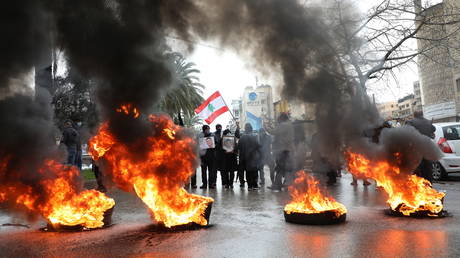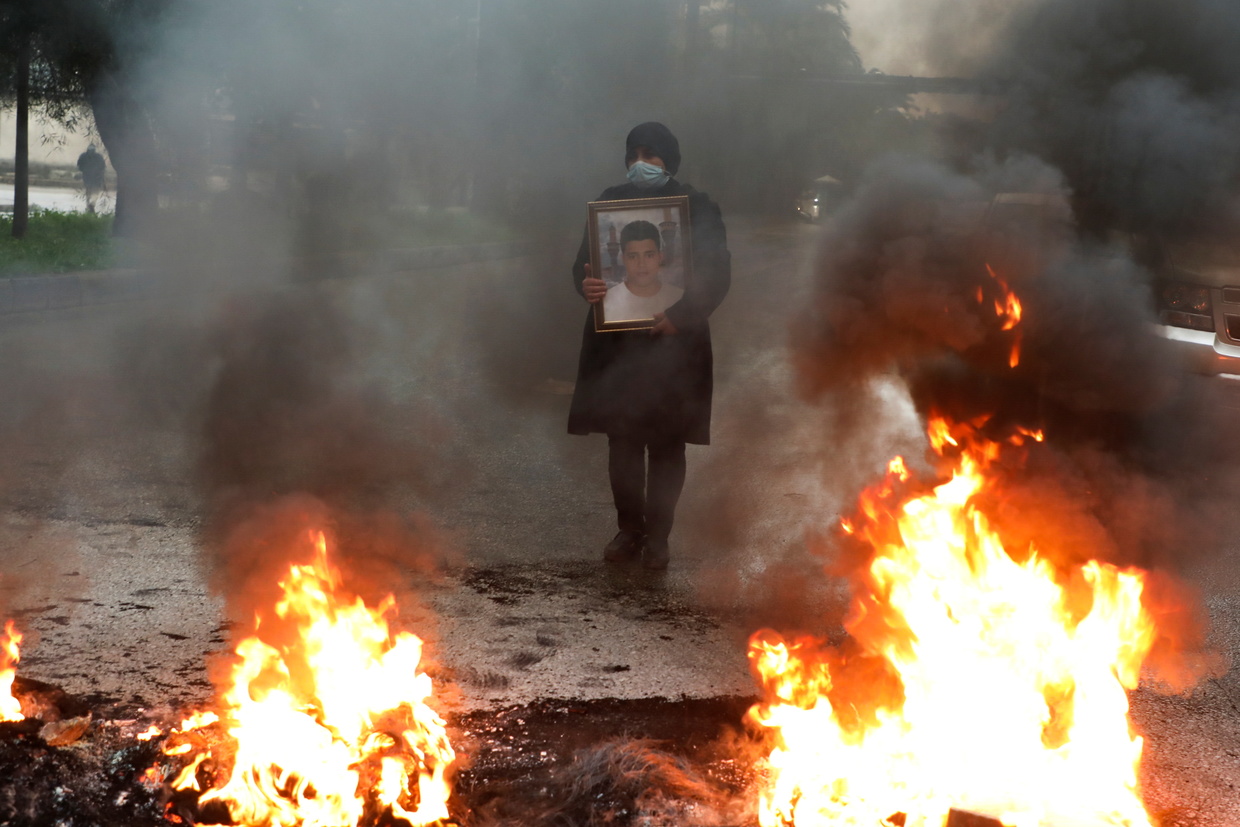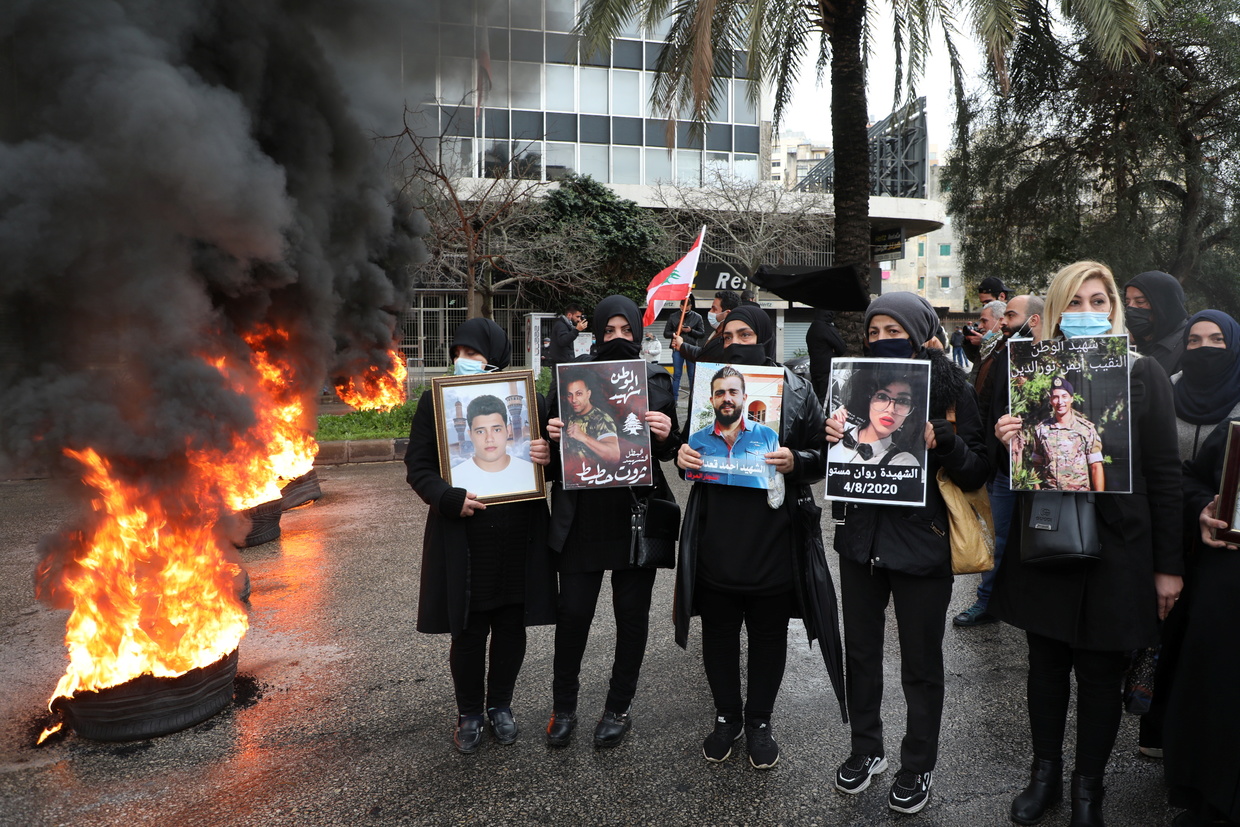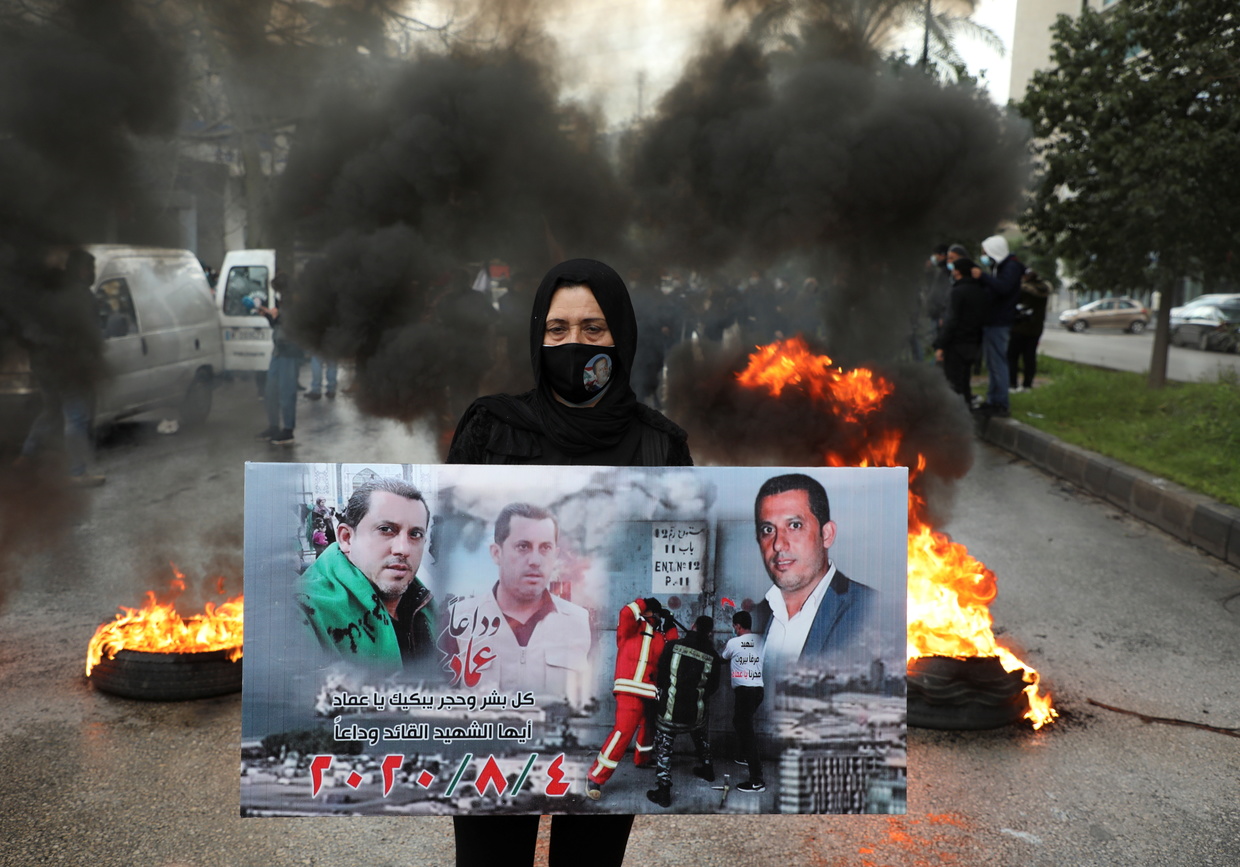
Relatives of people killed in the Beirut Port blast last August have been protesting for a second day after a judge, who’d charged outgoing Lebanese PM and three ex-ministers over the explosion, was removed from the case.
Around 70 demonstrators gathered outside Beirut’s Palace of Justice on Friday before setting tires on fire and blocking roads in front of the ministerial building, all in protest at the judge’s removal.
The protesters, who carried photos of their relatives and Lebanese national flags, said that pulling judge Fadi Sawan from the case will only delay bringing those responsible for the tragedy to justice.

In December, Sawan charged Lebanese caretaker PM Hassan Diab and three former ministers with negligence over the incident, the largest non-nuclear blast in history.
A huge stockpile of ammonium nitrate – a highly explosive material used in fertilizers – which was stored unsafely at the port for years, detonated on August 4, killing some 200 people, injuring thousands more and causing mass destruction in the city.
On Thursday, the Lebanese Court of Cassation dismissed Sawan from the case, arguing that his objectivity was in question due to his own house being among the numerous buildings damaged by the explosion. The move followed a request from two of the ministers indicted by the judge.

The demonstrators labeled Sawan’s dismissal an “execution of justice,” complaining that his successor would now have to read “thousands of pages” to get up to speed with the investigation that has been ongoing for half a year.
The court decision had destroyed “what remains of conscience and confidence between us and this rotten judiciary,” Ibrahim Hoteit, who lost his brother in the blast and acts as a spokesman for the families, said in a statement.

The relatives vowed that if they discover that a new judge heading the inquiry turns out as “being too lenient with the investigation, we will stand up to him no matter who he is.”
Later on Friday, Lebanon’s justice minister appointed another judge, Tarek Bitar, to take charge of the investigation into the port blast.
However, Lynn Malouf, Amnesty International deputy regional director for the Middle East and North Africa, was among those expressing concern that the inquiry really will punish those responsible.
It was set up “with the view of the politicians being the victims rather than the perpetrators,” Malouf told Reuters. “A domestic-led investigation cannot deliver on justice.”
Like this story? Share it with a friend!




